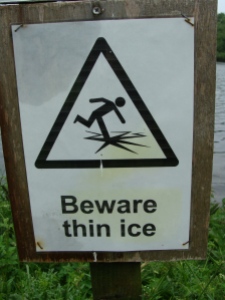I spent this past weekend at the 2nd Theorising Education Conference in Stirling, Scotland, organised by the The Laboratory for Educational Theory at the School of Education. Round about 100 participants from all over the world gathered together to reflect on the future of theory in education.

But how can we predict the future without knowing our past? This was one of the main claims that have been made throughout many presentations. Many prominent figures like Dewey, James or Vygotsky were used to link knowledge from the history to current challenges in education. A good example for that are the „Golden Key Schools“ in Russia based on, among other things, Vygotsky’s socio-cultural theory.
Another point that was deeply discussed is the dominance of English in adult education and also the rather loose community of theorists in education. So why not cite each other more than scientists from outside? Why not have „Theory Symposias“ at large international conferences?
With my own presentation I hope to step in this direction, slides are available below. The idea that is put forward in our paper (together with Rob Farrow from the OUUK) is to connect Open Educational Resources and the German educational and philosophical theory „Bildung“ for the following reasons:
- OER is very much about enabling people and institutions to open up and to share their ideas freely with each other using modern ICT. But how this opened world impacts our own education is left out. In this regard, Bildung provides an additional dimension that goes beyond pure learning processes to include the entire person with its own values, beliefs, and attitudes.
- Bildung is a highly elaborated concept on the philosophical dimension of what it is to become an autonomous and self-directed human being. It is based on the fundamental assumption that Bildung is about the interaction of the individual with him-/herself and the world in the freest and the most unrestricted way possible. But the means of doing this, i.e. learning from other cultures or other disciplines, are not covered as access to materials was not a big thing at the time when the classic ideal of Bildung was first claimed.
Our aim is therefore to bring these two concepts together in order to reclaim the ideal of Bildung in times of economic reduction of the human into measurable competences which are in this view also understood as „human capital“.

Schreibe einen Kommentar